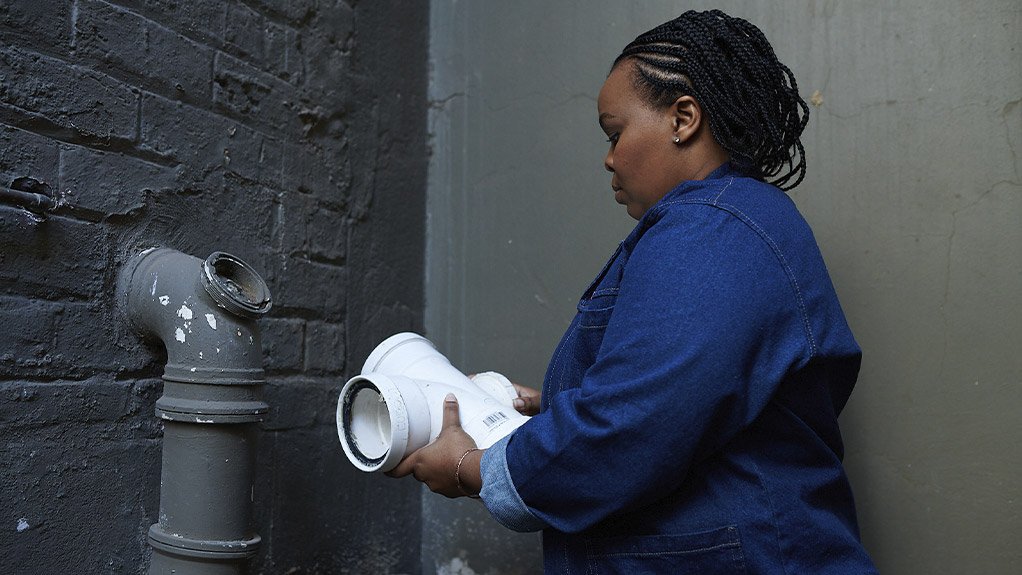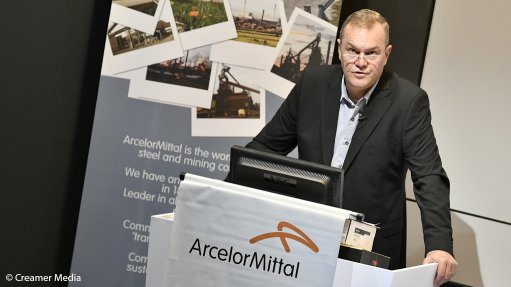Plumbing is a key component of WASH
This article has been supplied.
A vital component of water, sanitation and hygiene (WASH), plumbing systems have helped to curtail outbreaks of, among other diseases, dysentery, cholera and typhoid in communities. Outbreaks of these diseases are still a common occurrence in areas where there is insufficient sanitation and hygiene facilities, including plumbing systems.
Considering the important role that the plumbing profession continues to fulfil in South African society, it is governed by many laws, regulations, by-laws and national standards. Moreover, the profession is adequately represented by robust industry bodies, such as the Institute of Plumbing South Africa (IOPSA). One of IOPSA’s mandates is to uphold very high standards in the profession to help safeguard against substandard workmanship in the industry. Its strong membership comprises of qualified plumbers who have completed a minimum of three years of theoretical and practical training, before registering with the Plumbing Industry Registration Board to ply their trade.
“Despite the potential health risks involved, many property owners still entrust the installation and maintenance of their plumbing systems with individuals who are not trained in the field. They are lured by the very low rates that these so-called ‘plumbers’ charge for their services, which are especially enticing in this very challenging economic climate. These individuals are able to supply their services at cut-throat rates because they take short cuts – either deliberately or due to a lack of understanding of standard protocol as they have not been trained in the field. They will also often use inferior components that do not comply with quality standards when installing, maintaining and repairing plumbing systems, further driving down the costs of their services,” Brendan Reynolds, Executive Director of IOPSA, says.
A correctly installed and maintained drainage system distances humans from waste, over-and-above the role it plays in protecting property, including the structure of a building, from damage. It also protects the environment from the serious hazards present in raw sewage.
Diseases associated with sewage can be spread directly or indirectly by people who have come into contact with them. For example, individuals may inadvertently step into waste that is leaking out of poorly manufactured, installed or maintained pipes. Germs and bacteria associated with sewage are also transferred to people and objects by insects, vermin and small animals which have come into contact with the waste.
Another significant risk is that broken sewerage pipes leak into damaged water mains and, in doing so, contaminating drinking water. Contaminated water is estimated to cause more than 400 000 diarrhoeal deaths every year.
One of the many diseases associated with a leaking drainage system is Campylobacteriosis. Children and people with weaker immune systems are especially vulnerable to this disease which causes, cramps, nausea, vomiting, headaches and fever.
Typhoid fever is another disease that is transferred in this manner. Its symptoms include headache, weakness, abdominal pain and rashes. The media has widely reported on recent Typhoid cases in South Africa.
Hepatitis A is commonly spread when leaking drainage systems are left unattended for protracted periods. More frequent among adults, this disease stays in the body for up to nine months causing fevers, nausea, diarrhoea, body pain and jaundice.
Qualified plumbers are very aware of the health risks posed by the poor maintenance and installation of drainage systems. This is in addition to the use of inferior components that have not been certified by relevant standards authorities for use on properties.
They will also ensure that drainage systems are adequately sized and can be cleaned easily via manholes that have been appropriately spaced. This ensures that these systems are able to convey wastewater quickly from the building without fouling, depositing solids or blocking .
Each fixture or group thereof that is connected to the drainage system will also feature a liquid seal trap of a sufficient depth so as to prevent the emission of gasses. Importantly, this also prevents rodents and insects from accessing the premises via the sewer and spreading disease.
Drainage systems must also be designed and constructed in a manner that allows air to circulate through all of the pipes to ensure effective functioning and protect the seal of the traps from syphoning. The uppermost portion will be connected to an adequately sized ventilating pipe that discharges above roof level and is positioned in such a way that foul air cannot return to a building.
IOPSA’s members also know that they need to take precautions to ensure that the drainage system is free of any substance that may corrode and block pipes. Some substances may even produce explosive mixtures, as well as damage pipes or their joints. In extenuating circumstances, they may even interfere with the effective functioning of sewage treatment plants or cannot be removed by these facilities, contaminating receiving water.
Backflow from public sewers is another important consideration when designing drainage systems. A correctly designed system will ensure that sewage cannot enter buildings that are connected to it when there are floods and blockages in public sewers.
“We have made immense strides in professionalising the plumbing industry over many years, and this is helping to keep communities safe. While some may take plumbing for granted, it is important to remember that there are still many South African citizens who do not have access to proper sanitation services – one of the most basic human rights, together with drinking water. This places many lives at risk and deprives citizens of their dignity,” Reynolds concludes.
Comments
Press Office
Announcements
What's On
Subscribe to improve your user experience...
Option 1 (equivalent of R125 a month):
Receive a weekly copy of Creamer Media's Engineering News & Mining Weekly magazine
(print copy for those in South Africa and e-magazine for those outside of South Africa)
Receive daily email newsletters
Access to full search results
Access archive of magazine back copies
Access to Projects in Progress
Access to ONE Research Report of your choice in PDF format
Option 2 (equivalent of R375 a month):
All benefits from Option 1
PLUS
Access to Creamer Media's Research Channel Africa for ALL Research Reports, in PDF format, on various industrial and mining sectors
including Electricity; Water; Energy Transition; Hydrogen; Roads, Rail and Ports; Coal; Gold; Platinum; Battery Metals; etc.
Already a subscriber?
Forgotten your password?
Receive weekly copy of Creamer Media's Engineering News & Mining Weekly magazine (print copy for those in South Africa and e-magazine for those outside of South Africa)
➕
Recieve daily email newsletters
➕
Access to full search results
➕
Access archive of magazine back copies
➕
Access to Projects in Progress
➕
Access to ONE Research Report of your choice in PDF format
RESEARCH CHANNEL AFRICA
R4500 (equivalent of R375 a month)
SUBSCRIBEAll benefits from Option 1
➕
Access to Creamer Media's Research Channel Africa for ALL Research Reports on various industrial and mining sectors, in PDF format, including on:
Electricity
➕
Water
➕
Energy Transition
➕
Hydrogen
➕
Roads, Rail and Ports
➕
Coal
➕
Gold
➕
Platinum
➕
Battery Metals
➕
etc.
Receive all benefits from Option 1 or Option 2 delivered to numerous people at your company
➕
Multiple User names and Passwords for simultaneous log-ins
➕
Intranet integration access to all in your organisation



















